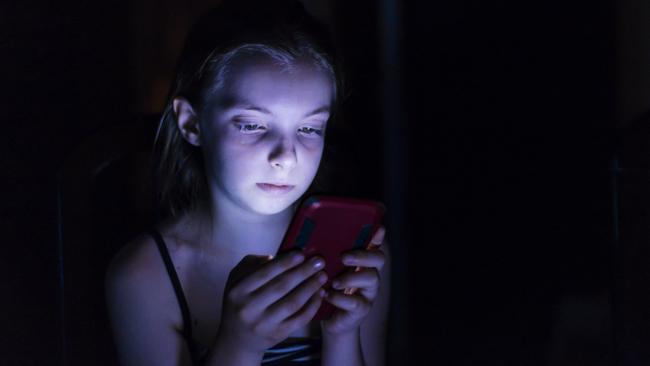Expert warns Millennials at risk of ‘virtual autism’ as tech addiction changes brains
A generation has become so addicted to social technology they are “virtually autistic” and unable to be stimulated in the real world, according to one of the world’s foremost brain experts, who warns addiction to social media has rewired Millenials’ brains.

News
Don't miss out on the headlines from News . Followed categories will be added to My News.
A generation has become so addicted to social technology they are “virtually autistic” and unable to be stimulated in the real world, according to one of the world’s foremost brain experts.
Addressing a forum of Australian medical experts on Thursday, neuroscientist Baroness Susan Greenfield warned addiction to social media and digital interactions had rewired Millennials’ brains to need constant gratification.
However, she said much of the damage could be undone in as little as five days by banning technology and undertaking more structured activities that can increase a persons’ attention span, such as reading, playing music, sport, gardening or cooking.
SOCIAL MEDIA BEHAVIOUR LIKE DRUG ADDICTION
TEENS ADDICTED TO SCREENS RISKING HEALTH
INFANTS SUBJECTED TO TOO MUCH SCREEN TIME
“We want to extend the present moment and that, I would argue, would improve cognition,” Baroness Greenfield said. “It is done by very simple things and it is a shame I even have to flag this because this is what human beings did up until 2000. It generates a life story and that is a much more robust sense of identity than tattoos or 5000 friends on Facebook.”
A University of Oxford senior research fellow, Baroness Greenfield sparked controversy a decade ago when she warned of the impacts of excessive video game play and digital technology. However, addressing the Australian and New Zealand College of Anaesthetists’ annual scientific meeting in Kuala Lumpur on Thursday, she said new research had vindicated her stance and hastened the need for action.

The former director of the Royal Institution of Great Britain — and 2006 honorary Australian of the Year — will also travel to Victoria next month to discuss the issues with the Department of Education.
During typical face-to-face meetings only 10 per cent of communication comes from spoken words. However, Baroness Greenfield said people growing up as native users of Facebook and other social media were losing the ability to use the other 90 per cent of communication that came through visual and other queues, impacting their interpersonal skills. “That might lead to autistic-like traits … and we are going to have what is now called increasingly by people ‘virtual autism’, that is to say an impairment of interpersonal skills due to excessive use of screens and not enough rehearsal of face-to-face interactions,” she said.
“We might be having a different type of consciousness, one where there is no inner narrative, no inner train of thought, but one that is interactive and dependent on the environment.”
Baroness Greenfield highlighted a study recently published in Science which found when Millennials were denied access to their devices for just 15 minutes they preferred to give themselves an electric shock than be left alone in a room with their own thoughts.
Last month the World Health Organisation issued new recommendations stating no child under one should be exposed to screens such as iPads because it impedes cognitive development as well as vision, while the American Academy of Pediatrics went further and recommended banning children up to two.

Baroness Greenfield said children addicted to video games had similar conditions in their brains — with underperforming areas associated with planning and problem solving, as well as an excess of the reward chemical dopamine — to problem gamblers, the obese and people with schizophrenia.
“The drive in such scenarios is for sensation rather than cognition, and where are you going to find the need for being excited – from the screen, of course, because it has a much more ready supply of bright colours, noises and interaction,” she said.
But while she warned the technological and cultural change could turn people into “volatile three-year-olds”, the baroness said the human brain’s ability to adapt meant it could be retrained to learn patience if people got involved in structured activities that could inform their own sense of identity.


